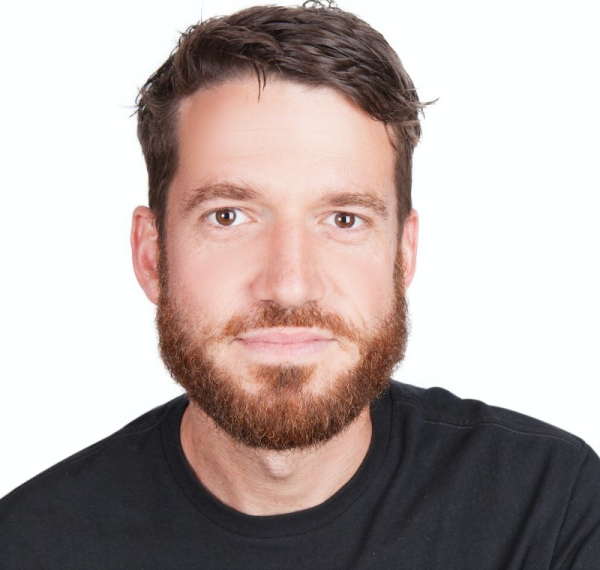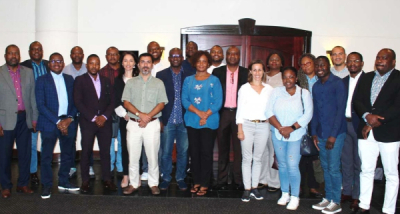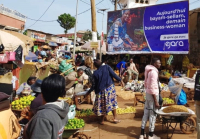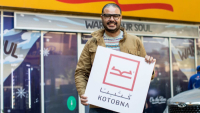According to Interpol, Africa saw a sustained rise in cyberattacks in 2020, including a 238 percent increase in those targeting online banking platforms. As Internet use intensifies, cyber threats are becoming major concerns.
Over the past decade, in Africa, investments in broadband Internet and digital transformation have steadily increased to match the needs. The investments helped boost internet penetration from 9% in 2012 to over 30% this year. They also enabled 48 countries to perform great in the e-government development index. This growth in the continent’s digital adoption carries some risks, however. It did open up opportunities in health, education, commerce, and entertainment but it also heightened cybercrime risks.
In its upcoming report "The downsides of digital revolution: Confronting Africa's evolving cyber threats", the Global Initiative Against Transnational Organized Crime states that Africa is currently under threat from four main categories of dangers that are fostered by the development of a poorly controlled digital world. They are likely to have an increasing effect on conflict, peace, and security in Africa if the digital shift is not properly prepared.
The first category is organized crime, which increasingly relies on digital technologies to enhance and diversify its activities. Then there is the risk of sabotage of critical infrastructure, including attempts to weaken or destroy national, governmental, or military infrastructure, equipment, or systems and penetration of the financial and energy sectors across Africa. The third category is cyber espionage and attempts to penetrate systems to extract sensitive information while the last is innovation in armed conflict or the use of digital technology to facilitate organized violence, such as the proliferation of fake news on social networks to incite a mob or the deployment of unmanned aerial vehicles.
These cyber threats have so far benefited from a fertile breeding ground due to the weak protection of African cyberspace. Only 18 of Africa's 54 countries have developed national cybersecurity strategies, which are needed to define the scale and scope of a country's cybersecurity challenges, assign government-wide responsibilities for monitoring and responding to threats, and guide external support.
On the continent, 22 countries have National Computer Incident Response Teams (CIRTs), which are groups of key stakeholders and experts that monitor major threats and help countries recover from significant security incidents. Only fifteen have ratified the Budapest Convention on Cybercrime or the African Union Convention on Cybersecurity and Data Protection, which strengthen international cybersecurity cooperation.
According to the Global Initiative Against Transnational Organized Crime, to thwart the pitfalls of digital transformation, African countries need to raise public and private actors’ awareness of cybersecurity issues, develop a skilled workforce, improve the regulatory and technical framework and enhance regional and international cooperation. Otherwise, it says, they could miss out on the US$180 billion potential the digital economy has to add to GDPs (according to the IFC and Google) by 2030.
Muriel Edjo
The tech enthusiast has acquired several years of professional software development experience working for African and British firms. With his startup Deimos, he helps companies migrate their data to the cloud.
Andrew Mori (photo) is a South African tech entrepreneur. In 2018, he co-founded Deimos, a Cape Town-based cloud-native security development and operations startup that he heads as the CEO.
Deimos was launched to help companies improve the services they offer. With its software engineering, cloud security, and platform modernization services among others, it helps avoid costly decision errors by giving them access to scalable, high-performing, and reliable systems.
“Our company is focused on helping businesses make smart decisions, particularly from the cloud perspective. It’s imperative to note that migrating to the cloud, if done incorrectly, can be a very costly, difficult, and demoralizing experience. So having vast experience before starting Deimos, I can help companies mitigate risks. Deimos is assisting companies looking to modernize their software systems,” its CEO told TechCabal in November 2022, during an episode of the My Life in Tech podcast. The startup, which currently operates in South Africa, Nigeria, and Kenya, is Google Cloud’s largest partner in Africa. It is also a certified and experienced Amazon Web Services and Azure solutions architect.
Its CEO entered the professional world in 2007, working as a junior researcher at South Africa's Council for Scientific and Industrial Research (CSIR). In 2010, he spent seven months as a lecturer at Blake Hall College in the UK. He was later hired as a software engineer by Radical Company (from 2010 to 2011).
In 2012, he joined InventCommerce where he was successively lead Software Engineer and Technical Assurance Manager. In 2014, Konga Online Shopping appointed him as software engineering manager. In 2015, he became the associate director of engineering for the e-commerce firm before being promoted to the position of director of technology in 2016.
Melchior Koba
During the Covid-19 pandemic, remote education proved a crucial choice to ensure education continuity in Africa. Since then, the edtech segment has been growing steadily with a growing number of Africans adopting this option to further their education.
Sweetch is an e-learning platform developed by a Cameroonian eponymous start-up. It allows its users access to paid and free educational content online. It aims to create new opportunities for people and businesses by leveraging emerging technologies.
The platform has a mobile application -accessible for Android and iPhone users- that enables users to register accounts to access the courses. The edtech offers a multitude of academic and professional courses as well as masterclasses in various fields. Users can choose to learn at their own pace by defining their schedules. They can learn by watching high-quality videos and reading slides and PDFs and asking coaches questions when they don’t understand some topics.
The platform also offers live courses, training, and workshops. Learners can interact with the trainers, which greatly expedites the learning curve. Learners can also take part in live events such as webinars, fairs, conventions, forums, exhibitions, etc.
In June 2022, Sweetch was claiming over 2,500 members and setting its sight for 10,000 members and 200 trainers by January 2023. It also hopes to expand to 15 countries in the next 24 months.
Adoni Conrad Quenum
The project aims to encourage innovation, develop the local ICT ecosystem and contribute to the effective implementation of digital transformation.
In Senegal, the national ICT Observatory plans to develop an upgraded platform to promote the emergence and development of digital companies. Last Friday (December 2), the Ministry of Telecommunications organized a workshop to present the US$3 million project.
The project will be implemented by the United Nations Development Programme (UNDP) in partnership with the UNESCO Regional Office for Education in Africa (BREDA), the UNESCO Regional Office in Dakar, and the Senegalese branch of the Internet Society (ISCO).
According to Isaac Cissokho, Secretary General of the Ministry of Telecommunications, with the digital sector growing steadily in Senegal, it is crucial to "create an environment that can inspire emulation among the various actors of the ecosystem.”
The future platform will allow a better understanding of ICT adoption in the country and provide harmonized and quality data to guide the formulation, implementation, and review of ICT policies.
Before the proper upgrading works, a study on the use of digital tools and services will be carried out to ensure that the sector creates value in Senegal.
Samira Njoya
After her engineering studies, she worked in the media industry in the MENA region before venturing into the food industry. Her foodtech startup now has the confidence of several investors.
Egyptian-born Dalia Abou Omar (photo) is the CEO and co-founder of Brotinni, Egypt's first food technology, and butchery solutions company.
Through her startup, founded in 2020, she launched a platform that enables users to order fresh, hand-cut, and ready-to-cook meat and poultry products that can be delivered by its drivers. The startup recently opened its first warehouse to better serve its clients in Cairo. It is also working on the production of sealed bags to extend its fresh meats’ shelf life to 45 days.
In early November 2022, it raised US$600,000 during a funding round led by Innlife. “We are thrilled to receive our very first round of funding, which will enable us to scale our operations, invest heavily in marketing to increase awareness as well as expand the size of our fleet to keep up with customer expectations around speed and accuracy,” Ms. Dalia commented.
The entrepreneur graduated from the Misr University for Science and Technology, in 2000, with a bachelor's degree in engineering.
A well-known radio and TV presenter, she entered the professional world, in 2004, working as a TV Presenter for Dubai TV. Between 2008 and 2014, she was also a radio presenter for the Egyptian radio station Nugoom FM. Concurrently (between 2009 and 2013), she was also a TV presenter for Al Hayat TV Network. She held the same position for On TV between 2014 and 2015. In 2012, She joined Filmhouse media as general manager before being appointed as director of production and marketing by Dubai-based Tanweer Group, in 2016. In 2019, the smart ad network Adzily hired her as director of marketing and public relations.
Melchior Koba
Humanitarian institutions are usually faced with many challenges, including logistics problems, when working in unstable and insecure regions. Some parties are testing solutions to facilitate remote project management.
Last Thursday, the African Development Bank (AfDB) announced the roll-out of the RASME (Remote Appraisal, Supervision, Monitoring, and Evaluation) project in Angola, after a 3-day training.
RASME is a suite of tools and processes to collect data in real time. It was developed to enable AfDB, its clients, and development partners to better prepare projects, and progress reports, and assess impact openly and transparently.
According to the AfDB Group country manager for Angola, “this project can significantly enhance the data collection which we use to assess the effectiveness of our development work here in Angola.”
“It is significant that we are launching RASME in partnership with the Government of the Republic of Angola,” he added.
The data-gathering tool is the result of a partnership between the African Development Bank's Information Technology Department (CHIS), the World Bank's Geo-Enabling Monitoring and Supervision Initiative, and the KoBoToolbox Foundation, a non-governmental organization affiliated with the Harvard Humanitarian Initiative.
With RASME, AfDB staff, including project and sector managers, country and regional program managers, and government officials will now be able to compile project-related information directly from the field, using a smartphone, tablet or laptop, drones, and satellites. Data can be collected in a variety of formats: text, video, graphics, and even survey responses.
To date, RASME has been deployed in fourteen African countries, including Gabon, Cameroon, Chad, the Democratic Republic of Congo, the Central African Republic, and Mozambique. According to Dra Rossana Silva, Head of the International Economic Cooperation Department at the Angolan Ministry of Finance, "ensuring open and transparent reporting of our development initiatives is central to our mission. RASME is an important enhancement of our capacity to do this.”
Samira Njoya
The recent rise in e-commerce adoption in Africa has boosted the interest in last-mile delivery solutions, encouraging a growing number of startups to enter the segment.
Messenger is a digital platform developed by a Nigerian eponymous startup. It allows users -individuals or small and medium-sized businesses to deliver goods across Nigeria.
It also provides "premium haulage and cold-chain delivery services for large-scale clients across, in addition to last-mile delivery services for e-commerce and small business owners."
With over 40 bikes and motorcycles, and about 50 employees, the startup serves over 25 Nigerian cities. It boasts all the tools required to fulfill various orders including on-demand shipping services, transportation, cold chain solutions, warehousing, or last-mile delivery. Its ambition is to the start-up has all the tools to fulfill these various orders. Its ambition is "to become a globally recognized logistics and dispatch company reputable for package
delivery and haulage inNigeria.”
Thanks to its system, the start-up has signed partnerships with companies such as Jumia Foods and DHL Express Nigeria. In 2022, co-founder Amanda Etuk was selected as one of the 50 finalists of Africa's Business Heroes competition.
Adoni Conrad Quenum
The startup has developed a fintech app that allows the secured purchase, and transfer of digital assets and also enables users to save in cryptocurrencies. Its goal is to promote financial inclusion and democratize the use of digital financial assets.
Cameroonian crypto fintech Ejara announced, Monday (Nov 28), it has secured US$8 million in Series A funding.
The round, led by London-based venture capital firm Anthemis and Dragonfly Capital, had the likes of Mercy Corps Ventures, Coinshares Ventures and Lateral Capital, Circle Ventures Moonstake and Emurgo Ventures as participants.
The additional funds will be used to further democratize access to investment and savings products in Francophone Africa and the diaspora, using blockchain technology. "Financial inclusion is my utmost concern and my role is to ensure that the financial products that Africans deserve are accessible to them with just a few clicks and the lowest entry barrier,” said Nelly Chatue-Diop, CEO of Ejara.
The fundraising comes exactly one year after the company raised US$2 million in seed funding, bringing its valuation to US$10 million. According to the startup, the financial resources were used to boost the use of cryptocurrency and investment services in Francophone Africa.
Despite the recent collapse of cryptocurrencies, Ejara has seen a 10-fold increase in revenue and a 15% monthly growth in transaction volume since last October. The startup expects to grow its user base to 100,000 by the end of 2022. Currently, it boasts users from Côte d'Ivoire, Burkina Faso, Mali, Guinea, Gabon, and Senegal, as well as French-speaking Africans in the diaspora (Europe, Asia, and the United States).
Samira Njoya
Through the project, the Burkinabe government and international partners aim to leverage digital technologies to strengthen the country's health system.
Last Tuesday, in Kombissiri, Burkinabe Health Minister Dr. Robert Lucien Kargougou launched the pilot phase of Mhealth-Burkina, a mobile e-health app developed to improve community health.
The pilot phase will be carried out in two health districts, the Boromo and Kombissiri districts namely. It is aimed at collecting and transmitting integrated disease management data.
According to Minister Robert Kargougou, improving community health is one of the key priorities to strengthen the health system. "In some areas without health workers, only community-based health workers provide care. So, it is important to digitalize their activities through Mhealth-Burkina, which enables us to collect data on all the activities those community-based health workers perform daily," he said.
In 2019, in partnership with UNICEF and the Global Fund to Fight AIDS, Tuberculosis, and Malaria, the country developed a mobile data digitization application called "mHealth." The application aims to improve patient care and monitoring, as well as on-site drug stock controls.
The application, which works offline, transfers the collected data by SMS to a secure server. This server is accessible to community health center teams, health districts, regional health managers, and national health authorities.
According to the Health Minister, the pilot phase marks the beginning of the digitization of community health workers’ activities. About fifteen modules will be integrated into Mhealth-Burkina to allow the workers to instantly report the needed data.
By 2023, the app will be launched in seven regions covering about 7,500 health workers. Its ultimate goal is to cover every village located more than five kilometers from a health facility.
Samira Njoya
With the emergence of digital reading platforms, it has become easier to sell content online. In Egypt, a tech entrepreneur offers a similar solution to Arab authors.
Kotobna is a digital platform developed by an Egyptian eponymous startup. It helps Arab authors publish their content online and get an audience.
Apart from its web platform, the solution has a mobile application accessible on Android and iOS. Through the app, Internet users can access various books, including short stories- collections, poems comics, biographies, and specialized books.
With Kotobna, the Egyptian startup offers an alternative solution to authors who are unable to get their works published, and above all to new authors.
Its pricing strategy depends on the popularity of the book. According to Egypt Innovate, the books are free for the first 25 readers and then, the startup starts charging “readers a small fee to benefit the writer.”
It is really easy for authors to join the platform. They just need to register as a new user and click on the “Publish your book now” link on the homepage. Then, they will follow the required procedure.
In August 2022, the platform’s founder, Mohammed Gamal, was selected as one of the 50 finalists for Africa's Business Heroes competition, which entitles finalists to a slice of a US$1.5 million prize fund.
Adoni Conrad Quenum
More...
She is a business analyst, consultant, and project management expert with over ten years of experience working with startups in Nigeria, and Africa in general.
Nigerian-born Damilola Teidi-Ayoola (photo) is, since September 2022, Ventures Platform’s head of platform and networks. In that position, she leads a team focused on providing post-investment support.
When she was appointed to that position, she declared she was “excited to join the team and build out different elements of the platform and networks practice.”
“The goal is to build scalable support initiatives and harness the value of our collective networks to provide catalytic value to our founders,” she added.
Ventures Platform is one of Africa's leading seed funders, investing from pre-seed to Series A rounds. It has already invested in more than 60 companies in the healthcare, financial services, insurance, agriculture, education, big data, and internet infrastructure industries. It also invests in talented accelerators and digital infrastructures.
Ms. Damilola worked at Co-Creation Hub (CcHub) as an Incubation Manager from 2018 to 2019 and as Director of Startup Coaching from 2019 to 2022.
With a Bsc in Information Technology from the Eastern Mediterranean University, she started her professional career, in 2011, working as a software developer for application service provider Socketworks. In 2013, she joined the tech company Kinetik Solutions Ltd as a market analyst.
After a three-month internship at the University of Southampton's Program Management Office (iSolutions) in 2014, she joined the CcHub team for the first time where she was a business analyst for pre-incubation companies. From 2015 to 2017, she was the CEO of the Nigerian online ride-sharing platform GoMyWay Africa.
Melchior Koba
The Moroccan government is making continuous efforts to improve the country’s attractiveness and encourage value-added investments in tourism, which is a very promising local sector.
The World Tourism Organization (UNWTO) announced, Tuesday (Nov 29), that it has partnered with the Moroccan government to support 10,000 tourism SMEs in their digital transformation process.
A few days earlier, the two parties had signed an agreement in that regard, on the sidelines of the UNWTO Executive Council session in Marrakech.
"Micro, Small, and Medium Enterprises are the backbone of the global tourism sector…[They] were hit hardest of all by the pandemic.[...] With the right support, they can grow to become true agents of change and help build a more inclusive and sustainable sector. UNWTO is proud to be supporting thousands of small businesses, in Morocco and across the world, to make the shift to digital and so become more innovative and competitive, " said UNWTO Secretary-General Zurab Pololikashvili (photo, right).
The Moroccan tourism sector was indeed hit by the coronavirus pandemic, which caused a significant drop in performance. Nevertheless, according to Tourism Minister Fatim-Zahra Ammor (photo, center), it is recovering now. The figures disclosed show that in June 2022, the sector had improved by 173% year-on-year and 71% compared to the 2019 performances.
With 2.3 million tourists having so far traveled to Morocco since the country lifted its Covid-related travel ban in February, arrivals to the country are now up 52 percent compared to the 2019 arrival figures.
Let’s note that SMEs account for 98% of the country’s tourism industry. They are therefore the backbone of the industry, hence the importance of that agreement, which will allow their digital transformation, through expert and customized support.
Samira Njoya
The Egyptian start-up ecosystem has greatly flourished in recent years. To help its actors achieve better results, the government has committed to supporting it. This pledge has renewed investors’ interest in the ecosystem.
The Egyptian Information Technology Industry Development Agency (ITIDA) announced, Friday (Nov 25), a memorandum of understanding with 500 Global, one of the world's most active venture capital firms. The three-year agreement will allow the company to open an office in Egypt- its first ever in Africa, build the capacity of 200 start-ups and create an investment fund to support Egyptian startups.
"We are thrilled to partner with ITIDA to bring 500 Global’s world-class programs, which have produced eight of our 49 unicorns, and a venture education program tailored for accelerator managers. [...] As long-time investors in the country, we have the utmost confidence in the potential of the Egyptian market and look to be a key enabler of its fast-growing ecosystem," said Courtney Powell (photo, left), COO and Managing Partner of 500 Global.
Indeed, in a very short time, Egypt's startup ecosystem has emerged as one of the four largest in Africa. In 2021, its startups attracted nearly US$500 million in venture capital funding, more than double the amount raised in 2020. They also enabled the development of key sectors such as public transport, alternative, and renewable energy, agribusiness, and e-commerce.
The agreement signed aims to provide the country’s promising startups with the tools they need to succeed, and to train managers of budding accelerators, creating the conditions necessary to foster a regional community of innovators.
According to Amr Talaat (photo, center), Egypt's Minister of Communications and Information Technology, the partnership is part of the ministry's commitment to establishing cooperation with key global players. This commitment aims to create an inclusive and robust network of experts and investors, to accelerate the growth of the local start-up ecosystem, and encourage innovation and entrepreneurship.
Samira Njoya
He is a tech enthusiast and life& business strategist. He has developed digital solutions in almost every sector (education, agriculture, communication, etc) to positively impact his continent and the world at large.
Geophrey Tenganamba (photo) is a Tanzanian entrepreneur. He is also one of the co-founders and global managing director of UjuziNet Africa, a software editor.
The software editor, established in 2020, has published several solutions in a wide range of sectors. The solutions include AdBox, a digital marketing and customer relationship management platform. This platform, founded in 2021, enables SMBs, entrepreneurs, ad agencies, and influencers to communicate, market, sell and support their online audiences. It allows users to schedule posts across social networks and automate responses to comments left by customers.
UjuziNet Africa also published Mazao Hub, an agricultural platform designed to manage farmers, and agricultural activities and control complex agricultural operations. Its digital products also include UjuZinet e-learning – which provides access to quality education online and offline- and EMA ERP, a smart business platform that simplifies and automates business processes. All of the solutions it developed boast users in South Africa, Zimbabwe, Zambia, Congo, Kenya, Uganda, and Tanzania.
“Our focus is Africa, and we all know that Africa is filled with SMEs. SMEs in Africa and beyond are the fastest-growing segments in the cloud-based ERP platform space. They are all looking for solutions which are affordable, customizable, flexible, easy to use, that have close support and fit their business environment,” Geophrey Tenganamba explains.
Concurrently with his mission as the global managing director of UjuziNet Africa, the latter is, since 2019, the director of operations of the software development company AkiliCodes Africa Limited. In 2016, he founded Fursa 101 Africa, a commodity, trading, and logistics platform built for farmers.
The same year, he co-founded Global Corporate Performance Limited, a business consulting and branding firm. He is also the founder of several firms including Perfect Path Innovators (2011), The African Comfort Tours (2012), and Treasure House Real Estate (2013).
Melchior Koba















